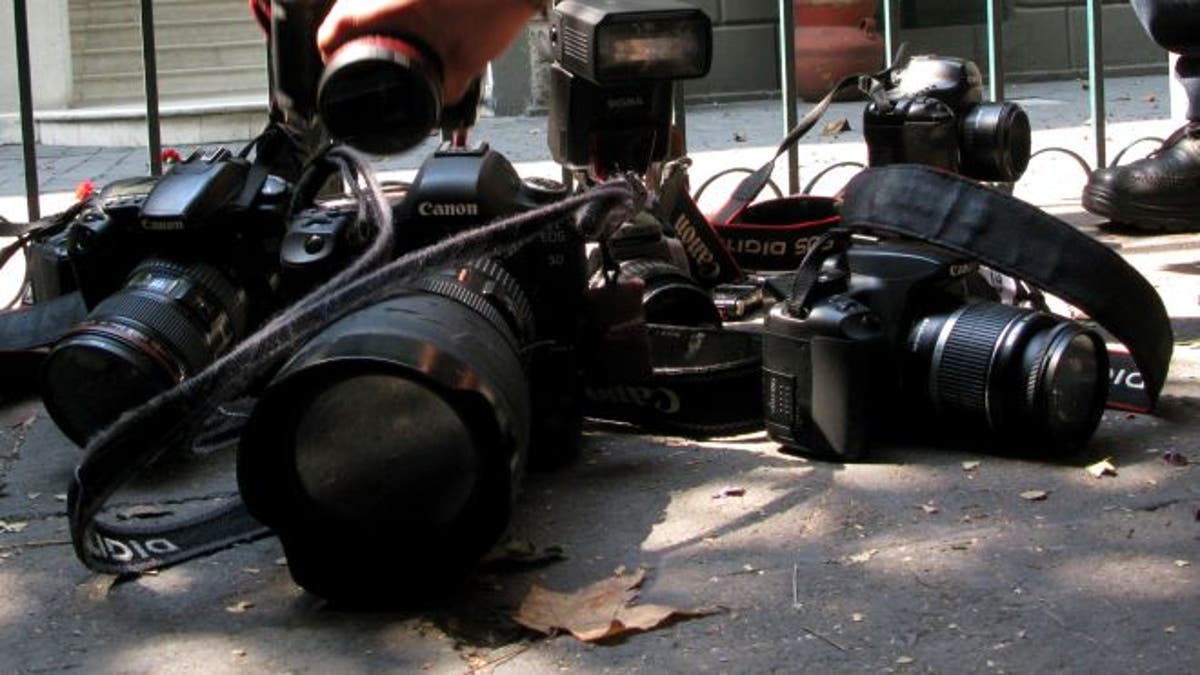
(AP2012)
Latin America is the deadliest place in the world for journalists, with 23 killed from January to June of this year, according to a report issued by a Swiss press freedom group.
The Press Emblem Campaign (PEC) reported that Mexico was the second deadliest country in the world for journalists, with eight murders in the last six months. Brazil ranked fifth worldwide, with six journalists killed, while Honduras had four journalists killed and Bolivia had two.
Colombia, Panama and Haiti all had one journalist murdered. War-torn Syria led the world with 20 journalists killed in 2012.
"Impunity for those responsible for human rights violations against journalists constitutes one of the biggest obstacles to the safety of journalists," a statement from the PEC said. "There needs to be swift and independent investigations in accordance with international standards into any allegations of violations."
Impunity for those responsible for human rights violations against journalists constitutes one of the biggest obstacles to the safety of journalists.
The continuing drug violence in Mexico contributed to the country’s high death toll of journalists in the first six months of this year. Since outgoing President Felipe Calderón declared war on the drug cartels in 2006, over 50,000 people have lost their lives in the ensuing conflict.
Last month, the Mexican government approved a constitutional amendment that makes attacks on the press a federal offense. The amendment allows federal authorities to investigate and punish crimes against journalists, persons or installations when the right to information or the right to expression is affected, according to the Committee to Protect Journalists (CPJ).
While the CPJ praised the passing of the amendment, Senior Americas Program coordinator Carlos Lauría warned that Mexico is far from being a safe place for journalists and that the press – and democracy itself – is under threat in the country.
"Mexico is one of the most dangerous places in the world for journalists," Lauría told Fox News Latino. "One of the worst effects of the rise of violence is that journalists are working in a culture of fear that leads to censorship."
A number of Mexican news agencies have agreed to guidelines where they promised not to glorify drug traffickers, publish cartel propaganda messages or reveal information that could endanger police operations out of fear of repercussions from the cartels.
Earlier this week, Mexican authorities in the state of Veracruz arrested nine organized crime suspects in connection to the killing of Mexican reporter Víctor Báez Chino.
"This is the first case in which Mexican authorities have been able to arrest suspects for the killing of a journalist in Veracruz," the Knight Center at the University of Texas at Austin reported.
After the coup in 2009 that ousted then-President Manuel Zelaya, Honduras saw a spike in the killing of journalists that drew international attention. A United Nations report from October 2011 on crime and drugs ranked Honduras as having the highest per capita homicide rate in the world at 82.1 homicides for every 100,000 inhabitants.
Lauría attributed the violence in the country to three factors: rampant crime, the presence of Mexican cartels –especially on the country’s east coast – and the political polarization that has divided the country since the 2009 coup.
"Each state needs to ensure a safe and enabling environment for journalists to perform their work independently and without any interference. This applies in conflict as well as in times of peace," the PEC wrote. "There is a growing threat to the safety of journalists posed by non-state actors, such as terrorist groups and criminal organizations."
